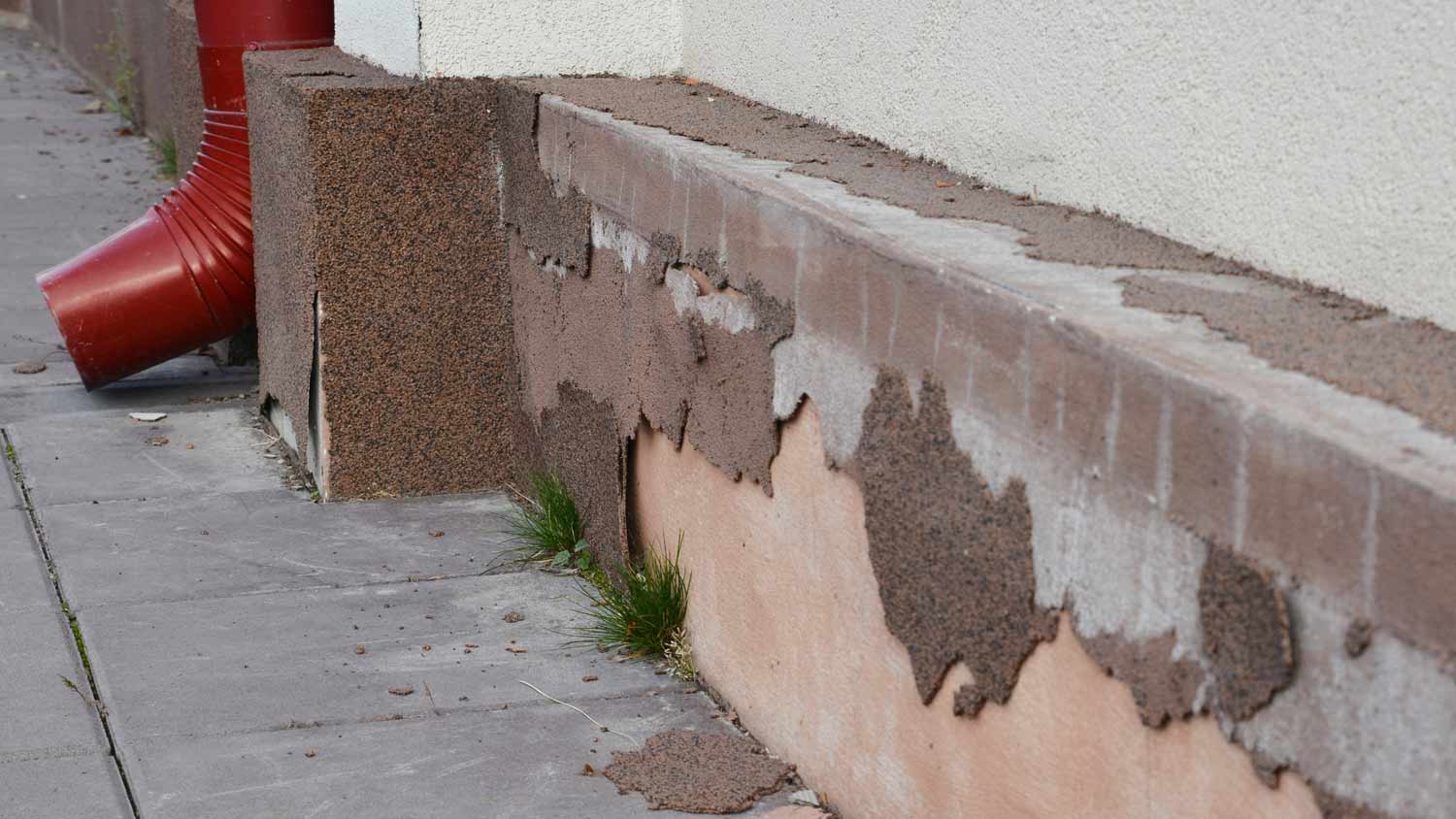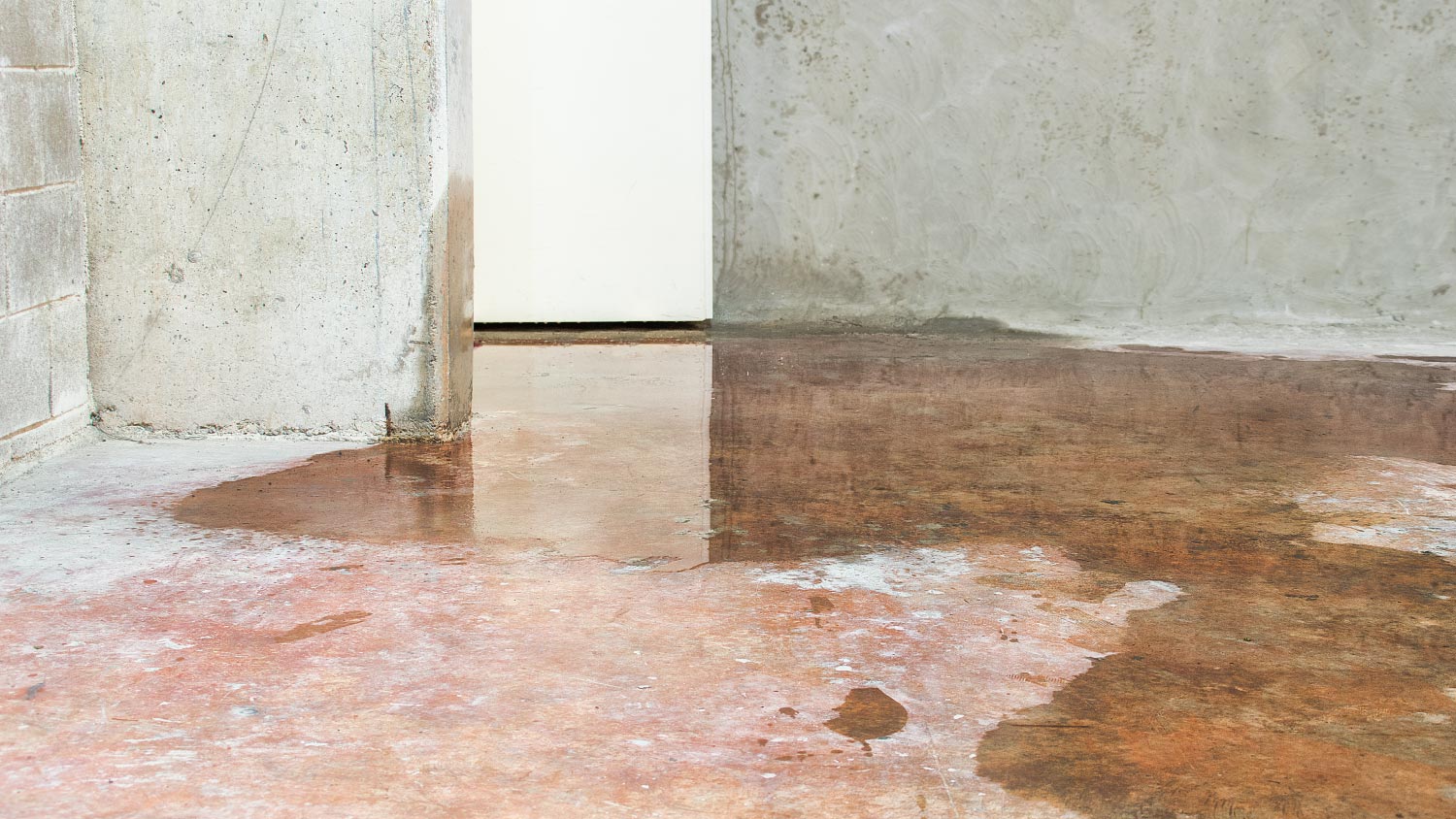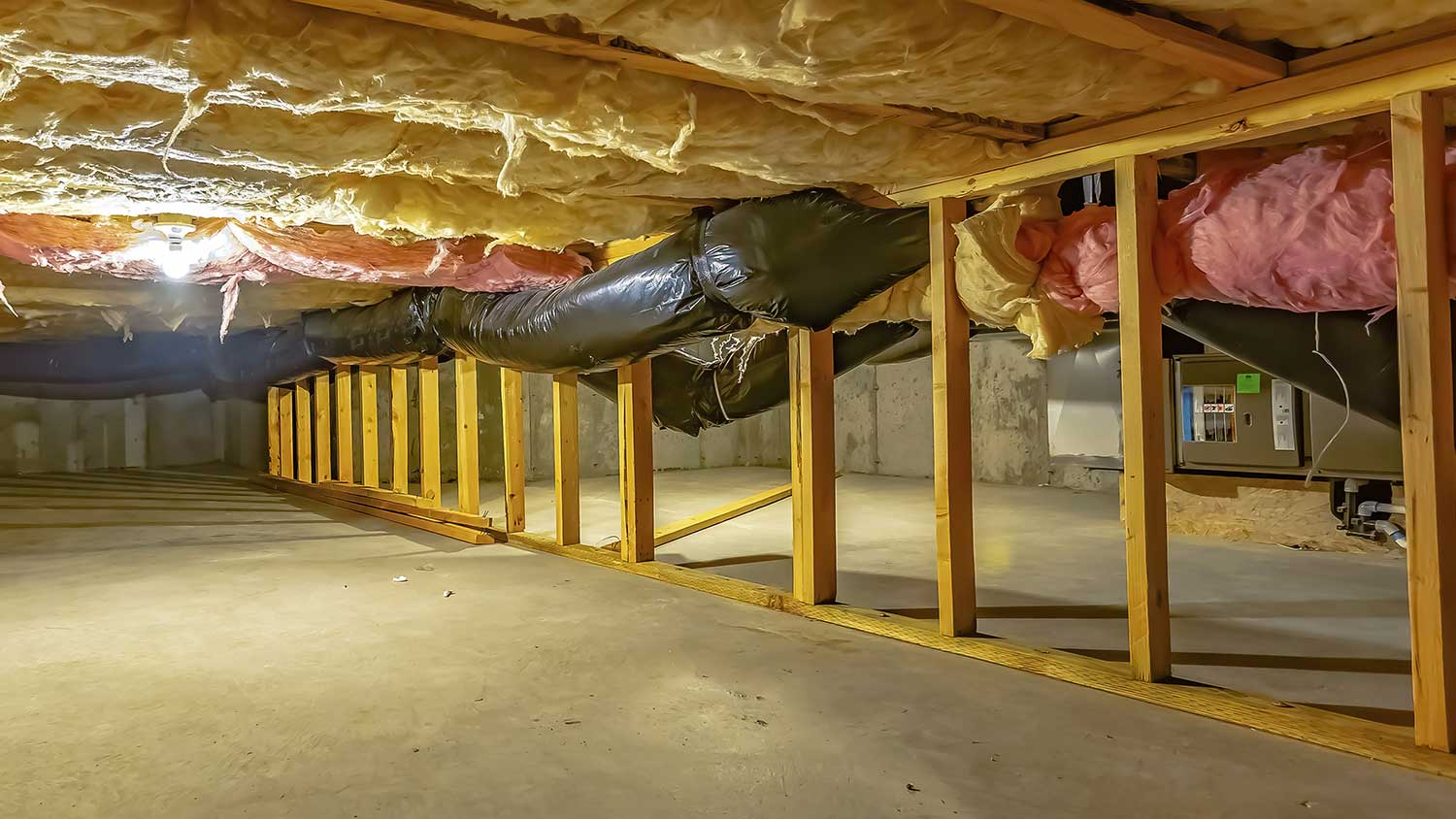
Who installs french drains? Learn which pros to hire, other options, and how pros get it done. Start your french drain hiring guide now.
Foundation repair costs an average of $5,176


Foundation repairs cost an average range of $2,224 to $8,134, or $5,176.
Repair costs vary widely depending on your home’s location, size, materials, and the severity of damage.
Fixing your foundation keeps the structure safe and can involve anything from sealing hairline cracks to adding major reinforcements.
Completing foundation repairs early can save you money by preventing more extensive future damage.
Working with a professional ensures accurate damage assessment and a lasting solution.
This article was updated using automation technology and thoroughly reviewed for accuracy by HomeAdvisor Editor Ryan Noonan.
Foundation repair averages $5,176, with most homeowners spending between $2,224 and $8,134. Some repairs can cost as little as $500, or they can reach as high as $16,000. Your final price depends on the type of problem, the size of your home, the type of repairs needed, and the severity of the damage. Budget early and bring in a pro to keep your home stable and avoid steeper costs later on.
What you’ll pay to repair a foundation hinges on several things, from the foundation type to how much damage you’re dealing with. Your home’s location and accessibility, as well as materials, labor, and additional foundation services, also influence your total bill.
The simplest fix is sealing cracks, which costs $250 to $800. If your foundation is sinking, settling, or pushing walls inward, expect the price to climb fast. Addressing smaller problems like cracks can help prevent the issue from escalating into costly repairs like leaks and bowing.
Foundation costs also vary depending on the type of foundation. Complex structures like basements require the most involved and expensive repairs.
Bigger homes often mean bigger repair bills. Sometimes you only need to lift part of the house. Your repair professional often takes into account the square footage of the raised section when calculating the number of supports required for the repair.
Labor rates swing with your location and your foundation pro’s experience. Most foundation specialists charge $200 an hour, but some quote by the day or per square foot. Contact several professionals to compare estimates and find the right fit for your project.
Materials costs come down to the fix. Sealing cracks takes simple fillers like epoxy or polyurethane, so that part of the bill stays low. However, if you need to raise your entire foundation for major repairs, your contractor may charge per support. In this case, they may offer you a choice of materials, such as carbon fiber strips or steel strips, so you can choose materials to fit your budget.
Where you live matters. Repairs often cost more near big cities or when materials have a long way to travel. If you live in a rural area, there may be higher costs for material and labor transportation. Contact a foundation repair professional in your area for an estimate of foundation repair costs for your home.
If accessing your foundation is difficult, it can drive up the cost of repairs. Driveways, sidewalks, thick shrubs, A/C units, or even patio furniture can slow crews down.
While permanent obstructions like driveways and sidewalks may be outside your control, removing things like patio furniture, shrubbery, and vehicles can reduce time spent accessing the foundation and save you money on repairs.
Depending on the cause of your foundation problems, you may need to contract additional services to address the issue or prevent future problems. These can include repairing leaks and moisture damage, conducting pressure tests on plumbing lines, or using mud-pumping to fill in cracks under a newly repaired foundation.
Foundation inspection report fees range from $340 to $780. A structural engineer has no vested interest in selling you a solution to your problem, so you’re more likely to get an unbiased opinion. Bring the report to a trusted pro and ask what it will cost to tackle the right fix.
Foundation repairs range in cost based on the nature of the repair needed, the extent of the damage, and factors like square footage and your location. Damaged foundations that are not repaired quickly can lead to irreparable damage and an unsafe structure that could be condemned. The longer you wait, the worse the damage can get, and the costlier it will be to fix.
| Damage Type | Average Cost Range |
|---|---|
| Cracking | $250–$800 |
| Leaking | $2,000–$7,000 |
| Settling or sinking | $5,000–$25,000 |
| Bowing walls | $4,000–$12,000 |
Crack repairs will run you between $250 and $800. Cracks wider than 1/8-inch are cause for concern. At this point, you probably have a structural problem and should consult a structural engineer about your options. It could be that your foundation is sinking or the soil is exerting too much pressure on it.
Cracks that do not affect the structure can be fixed easily. However, they should not be ignored because they are throughways for moisture and could lead to structural problems if left alone. This fix will involve injecting either epoxy or polyurethane foam. If it's wet and leaking, waterproofing will be necessary.
Fixing foundation leaks costs $2,000 to $7,000. A leak or two can signal a huge problem with drainage and moisture around your home. To fix this issue, you will want to consult a professional about various waterproofing techniques that can better secure the structure. They will probably recommend sealing your foundation.
To do this, contractors excavate around your foundation, install new tile drains, and fill the cracks with cement. They will also coat the structure in sealant and wrap it in a waterproof material. The cost of this repair involves labor, time, and equipment, but it will be worth it to have a stable home.
Contractors can restore the structure to its original height by raising it up and securing it with piers for $1,000 to $3,000 per unit, or by using mudjacking, which costs $500 to $1,300.
Settling often comes from bad soil or excess moisture, and those problems have to be fixed first. Hiring a professional with expertise in evaluating soil and moisture issues before you begin your repair will add to your total cost, but ensure that the job gets done properly.
Bowing basement walls can be fixed by using carbon fiber or steel reinforcement strips for $4,000 to $12,000. This type of damage is a sign of poor soil conditions caused by expansive clay, weak fill, or insufficient drainage. You want to catch this right away because it lowers your home value and can cause your house to settle. You’ll still need to check the surrounding soil to solve the root problem.
Foundation repairs average $5,166, with an average range from $2,220 to $8,113. Identifying the problem is the first step. Slabjacking a sinking foundation back into place may be all you need to do. Or, you may need to invest in the installation of steel support beams. Your contractor and structural engineer will play an important role in ensuring that you choose the right repair.
| Repair Type | Average Cost Range |
|---|---|
| Piering or basement underpinning | $1,000–$3,000 per pier |
| Slabjacking or mudjacking | $500–$1,300 |
| Waterproofing | $2,000–$7,000 |
Underpinning your basement costs $1,000 to $3,000 per pier. This is, in most cases, a more expensive repair method as it requires you to pay the cost of raising the foundation, excavation, and the installation of hydraulic piers. However, when the installation is performed by certified professionals, it is considered a permanent solution that will not be compromised by further settling of the house or shifting of the earth.
Also known as underpinning, this involves installing piers underground that lift and support the concrete. For this method, the foundation professional will need to dig many feet into the ground. The pier is then placed under your foundation and raised with hydraulics to lift it back into place and stabilize it. This method requires the use of multiple piers placed at different points.
The average price for concrete foundation jacking falls between $500 and $1,300. Slabjacking or mudjacking costs offer an affordable alternative to full foundation jacking. A professional pumps a grout mixture into the space under the concrete foundation and floats the foundation back to its original position.
This method is affordable and doesn't demand as much equipment or excavation. However, it is not the right solution for every foundation type. A professional will be able to assess which repair method is best suited for your particular issue. Slabjacking, although effective, could be rendered ineffective if there were any structural shifts to your home or the soil surrounding it.
Foundation sealing costs between $2,500 and $8,200. Sealing is a waterproofing solution to combat moisture and drainage issues. There are many facets to this process, and you don't necessarily need every service done. Waterproofing costs between $2,000 and $7,000.
Get an inspection from a structural engineer to find out the extent of your repair needs, so that you don't pay for unnecessary services. For example, applying sealant and installing a waterproof barrier may be all you need to do. If you have poor drainage, you'll need to make improvements in that area, too.
The type of foundation you have will narrow your repair options and can play a part in determining cost. Basements, for example, will require more extensive excavation than concrete slabs. Homes with crawl spaces or pier and beam structures will likely be easier to access and repair.
Settling slabs can usually be fixed through mudjacking and sealing. However, you might need a different type of supporting structure. Slabs work best in environments where the soil doesn't shift much. A structural engineer or soil specialist may recommend a deeper, more secure foundation. If you need a new one built, you'll be paying to have the house raised and the slab removed.
These may settle, bow, and crack. If moisture is causing significant deterioration under your home, a professional may recommend insulating and ventilating the area. If the supports are shifting in the soil and causing the house to sink, you can install adjustable joists in their place to accommodate soil change and level the structure.
Cracking and leaking are significant issues that can ultimately lead to bowing. Cracks run vertically, horizontally, or in steps along their joints. Horizontal cracks can be devastating for home stability. They will need to be filled, and drainage issues will need to be addressed. It is important to stabilize the foundation as soon as possible, using carbon fiber or steel reinforcements, as suggested by your contractor.
With a basement, you are likely to see the highest repair costs and the greatest variety of issues. Basements can sink, settle, crack, leak, and bow. Often, one of these problems will quickly lead to another if it is not addressed promptly. In most cases, you will need to improve waterproofing, which could require extensive excavation to get to the exterior. You will also have more surface area to seal. If a wall or walls are bowing, you may have to pay for reinforcements as well.
Pier and beam issues are most often due to wood decay and settling, which signals shifting soil or moisture issues. To combat this issue, you may need to adapt your current drainage system through grading or the installation of a new drainage system. If necessary, you may find that the cost of installing a sump pump is worthwhile. You’ll also likely need to replace your beams with steel or add more piers to the underpinning system.
Even simple foundation repairs often require professional skills and tools, so DIY isn’t the best option for foundation issues. However, you can make the foundation repair process more budget-friendly by doing the following:
Schedule a professional foundation inspection for an unbiased assessment of the damage.
Act promptly to prevent damage from escalating.
Contact multiple professionals and compare costs.
Ask whether your foundation repair pro offers a free estimating service.
Clear the area around your foundation of furniture, vehicles, debris, and greenery so your repair professional can easily access the space.
Budgeting for foundation repairs and addressing problems early can prevent major issues from developing and save you the cost of installing a new foundation.
No place is more important than your home, which is why HomeAdvisor connects homeowners with local pros to transform their houses into homes they love. To help homeowners prepare for their next project, HomeAdvisor provides readers with accurate cost data and follows strict editorial guidelines. We surveyed thousands of real customers about their project costs to develop the pricing data you see, so you can make the best decisions for you and your home. We pair this data with research from reputable sources, including the U.S. Bureau of Labor Statistics, academic journals, market studies, and interviews with industry experts—all to ensure our prices reflect real-world projects.
From average costs to expert advice, get all the answers you need to get your job done.

Who installs french drains? Learn which pros to hire, other options, and how pros get it done. Start your french drain hiring guide now.

Learn who to call for foundation repair. Compare foundation repair contractors vs structural engineers and get clear steps to fix issues today.

Wondering who inspects home foundations? Learn when to call a structural engineer vs. a home inspector and what each pro checks.

Who to call for water in the basement or crawl space? Learn whether to hire a plumber, contractor, or structural engineer and what to expect

Wondering who inspects crawl spaces? See if a home inspector or crawl space contractor should handle your crawl space inspection and what to expect.

If you need to waterproof your basement, consider essential cost factors, including basement size, sealant type, home age, and more.